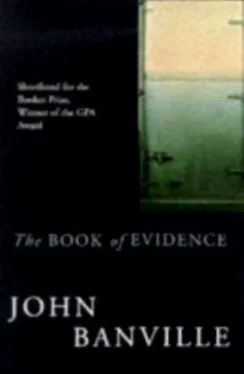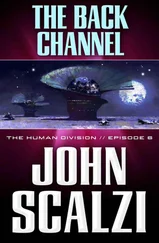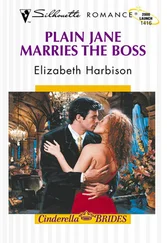My mother, I said to Behrens, and had to stop and clear my throat – my mother gave you some pictures, I believe. He turned his raptor's gaze on me. Sold, he said, and it was almost a whisper, sold, not gave. He smiled. There was a brief silence. He was quite at ease. He was sorry, he said, if I had come in the hope of seeing the pictures again. He could understand that I might be attached to them. But he had got rid of them almost at once. He smiled again, gently. There were one or two quite nice things, he said, but they would not have been comfortable, here, at Whitewater.
There you are, father, I thought, so much for your connoisseur's eye.
I wanted to do something for your mother, you see, Behrens was saying. She had been ill, you know. I gave her much more than the market value – you mustn't tell her that, of course. She wanted to set up in business of some kind, I think. He laughed. Such a spirited woman! he said. There was another silence. He fiddled with his knife, amused, waiting. I realised, with some astonishment, that he must have thought I had come to demand the return of the collection. Then, of course, I began to wonder if despite his protestations he had cheated on the price. The notion bucked me up immensely. Why, you old scoundrel, I thought, laughing to myself, you're just like all the rest of us. I looked at Anna's profile faintly reflected in the window before me. What was she, too, but an ageing spinster, with her wrinkles and her dyed hair – probably Flynn serviced her once a month or so, between hosing down the car and taking his moustache to the barber's for a trim. Damn you all! I poured myself a brimming glass of wine, and spilled some on the tablecloth, and was glad. Oh dark, dark.
I expected to be asked to stay the night, but when we had drunk our coffee Anna excused herself, and came back in a minute and said she had phoned for a taxi. I was offended. I had come all this way to see them and they would not even offer me a bed. An ugly silence fell. Behrens at my prompting had been talking about Dutch painters. Did I imagine it, or did he glance at me with a sly smile when he asked if I had been into the garden room? Before I realised it was the gilded salon that he meant he had passed on. Now he sat, head trembling, his mouth open a little, staring dully at the candle-flame. He lifted a hand, as if he were about to speak again, but let it fall slowly. The lights of a car swept the window and a horn tooted. Behrens did not get up. So good to see you, he murmured, giving me his left hand. So good.
Anna walked with me to the front door. I felt I had somehow made a fool of myself, but could not think how, exactly. In the hall our footsteps sounded very loud, a confused and faintly absurd racket. It's Flynn's night off, Anna said, or I would have had him drive you. I said stiffly that was quite all right. I was asking myself if we could be the same two people who had rolled with Daphne naked on a bed one hot Sunday afternoon on the other side of the world, on the other side of time. How could I have imagined I had ever loved her. Your father seems well, I said. She shrugged. Oh, she said, he's dying. At the door, I don't know what I was thinking of, I fumbled for her hand and tried to kiss her. She stepped back quickly, and I almost fell over. The taxi tooted again. Anna! I said, and then could think of nothing to add. She laughed bleakly. Go home, Freddie, she said, with a wan smile, and shut the door slowly in my face.
I knew who would be driving the taxi, of course. Don't say anything, I said to him sternly, not a word! He looked at me in the mirror with a mournful, accusing eye, and we lumbered off down the drive. I realised I had nowhere to go.
It is September. I have been here now for two months. It seems longer than that. The tree that I can glimpse from the window of my cell has a drab, dusty look, it will soon begin to turn. It trembles, as if in anticipation, at night I fancy I can hear it, rustling excitedly out there in the dark. The skies in the morning are splendid, immensely high and clear. I like to watch the clouds building and dispersing. Such huge, delicate labour. Today there was a rainbow, when I saw it I laughed out loud, as at a wonderful, absurd joke. Now and then people pass by, under the tree. It must be a shortcut, that way. At nine come the office girls with cigarettes and fancy hairdos, and, a little later, the dreamy housewives lugging shopping bags and babies. At four every afternoon a schoolboy straggles by, bearing an enormous satchel on his back like a hump. Dogs come too, walking very fast with an air of determination, stop, give the tree a quick squirt, pass on. Other lives, other lives. Lately, since the season began to change, they all seem to move, even the boy, with a lighter tread, borne up, as if they are flying, somehow, through the glassy blue autumnal air.
At this time of year I often dream about my father. It is always the same dream, though the circumstances vary. The person in it is indeed my father, but not as I ever knew him. He is younger, sturdier, he is cheerful, he has a droll sense of humour. I arrive at a hospital, or some such large institution, and, after much searching and confusion, find him sitting up in bed with a steaming mug of tea in his hand. His hair is boyishly rumpled, he is wearing someone else's pyjamas. He greets me with a sheepish smile. On impulse, because I am flustered and have been so worried, I embrace him fervently. He suffers this unaccustomed display of emotion with equanimity, patting my shoulder and laughing a little. Then I sit down on a chair beside the bed and we are silent for a moment, not quite knowing what to do, or where to look. I understand that he has survived something, an accident, or a shipwreck, or a hectic illness. Somehow it is his own foolhardiness, his recklessness (my father, reckless!), that has got him into danger, and now he is feeling silly, and comically ashamed of himself. In the dream it is always I who have been responsible for his lucky escape, by raising the alarm, calling for an ambulance, getting the lifeboat out, something like that. My deed sits between us, enormous, unmanageable, like love itself, proof at last of a son's true regard. I wake up smiling, my heart swollen with tenderness. I used to believe that in the dream it was death I was rescuing him from, but lately I have begun to think that it is, instead, the long calamity of his life I am undoing at a stroke. Now perhaps I'll have another, similar task to perform. For they told me today my mother has died.
By the time the taxi got me to the village the last bus to the city had left, as my driver, with melancholy enjoyment, had assured me would be the case. We sat in the darkened main street, beside a hardware shop, the engine purring. The driver turned around in his seat, lifting his cap for a rapid, one-finger scratch, and settled down to see what I would do next. Once again I was struck by the way these people stare, the dull, brute candour of their interest. I had better give him a name – it is Reck, I'm afraid – for I shall be stuck with him for a while yet. He would be happy, he said, to drive me into the city himself. I shook my head: it was a good thirty miles, and I already owed him money. Otherwise, he said, with an awful, ingratiating smile, his mother might put me up – Mrs Reck, it seemed, ran a public house with a room upstairs. The idea did not appeal to me, but the street was dark and grimly silent, and there was something very depressing about those tools in that shop window, and yes, I said faintly, with a hand to my forehead, yes, take me to your mother.
But she was not there, or asleep or something, and he led me up the back stairs himself, going on tiptoe like a large, shaky spider. The room had a little low window, one chair, and a bed with a hollow in the middle, as if a cadaver had lately been removed from it. There was a smell of piss and porter. Reck stood smiling at me shyly, kneading his cap in his hands. I bade him a firm goodnight, and he withdrew, lingeringly. The last I saw of him was a bony hand slowly pulling the door closed behind him. I walked back and forth once or twice gingerly, the floorboards creaking. Did I wring my hands, I wonder? The low window and the sagging bed gave me a vertiginous sense of disproportion, I seemed too tall, my feet too big. I sat on the side of the bed. A faint radiance lingered in the window. If I leaned down sideways I could see a crooked chimney pot and a silhouette of trees. I felt like the gloomy hero in a Russian novel, brooding in my bolthole above the dramshop in the village of Dash, in the year Dot, with my story all before me, waiting to be told.
Читать дальше












